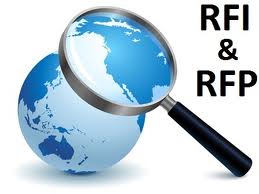 Video Clip: Click to Watch
Video Clip: Click to WatchHow to build solid RFIs and RFPs for complicated systems,
which will maximize the number of highly qualified bidders
This three-day course on proposal writing is designed for engineers, scientists, project managers and other professionals who design, build, test, buy or sell complex systems. Each topic is illustrated by real-world case studies discussed by experienced system development and acquisition professionals. Key topics are reinforced with small-team exercises. Over two hundred pages of sample Requests for Proposal (RFP) and Requests for Information (RFI) and are provided. Students assess real RFIs and RFPs in class using checklists and templates provided
Since 1984, the Applied Technology Institute (ATI) has provided leading-edge public courses and onsite technical training to DoD and NASA personnel, as well as contractors. Whether you are a busy engineer, a technical expert or a project manager, you can enhance your understanding of complex systems in a short time.
You will become aware of the basic vocabulary essential to interact meaningfully with your colleagues. If you or your team are in need of more technical training, then boost your career with the knowledge needed to provide better, faster, and cheaper solutions for sophisticated DoD and NASA systems.
Why not take a short course? ATI short courses are less than a week long and are designed to help you keep your professional knowledge up-to-date. Our courses provide a practical overview of space and defense technologies which provide a strong foundation for understanding the issues that must be confronted in the use, regulation and development of complex systems.
What You Will Learn From This Course:
- What are Requests for Proposal (RFP)?
- How do they differ from Requests for Information (RFI)?
- How can they help us cost-effectively buy robust systems that meet not only the specification but also meet the needs and expectations of the end users?
- What makes “good” RFIs and RFPs?
- What should always be included and what should never be included in them?
- What is the one item that, if missing from the RFP, will ensure no reputable firm will bid the job?
- What is the one thing that inexperienced RFP writers inadvertently do that guts the competitiveness (only one company will bid) and practically guarantees protests of any contract award?
- What RFP components and features will attract the most qualified bidders?
You produced some decent points there. I looked on the net for the problem and discovered most individuals will go in addition to your internet site.
Is this ok to add this article to my facebook fan page, i think they would love this stuff
Vertueusement je trouve c’est hasardeux d’échanger un terrain… On peut facilement se faire baiser. J’ai opté pour un appart en logement neuve.